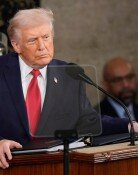Companies downsize investment due to capital shortage
Companies downsize investment due to capital shortage
Posted October. 27, 2022 07:49,
Updated October. 27, 2022 07:49
Amid the concern about global economic recession and the shortage of funds in the capital market, companies’ investment plans are facing challenges. SK Hynix decided to reduce its next-year investment, which was expected to be a little less than 20 trillion won, by more than 50 percent compared to this year. A member of SK Hynix said that the reduction is comparable to that of the 2008-2009 Financial Crisis. Hyundai Motor Company, Hyundai Oilbank, and Hanwha Solution also decided to withdraw, reduce, or hold off on existing investment plans.
Underperformance comparable to ‘earning shock’ is leading to the suspension of corporate investment. According to the Wednesday announcement, SK Hynix operating profit for the third quarter decreased by 60.3 percent compared to the same period last year. Samsung Electronics estimated operating profit also decreased more than 30 percent, while LG Display is expected to record a negative operating profit for two quarters in a row. The recession in the semiconductor industry, the soaring dollar-won exchange rate, and geopolitical issues, such as conflicts between the U.S. and China, are adding more concerns to the future. Companies are urgently tightening their spending rather than investing.
Companies must also pay for the capital they have procured for large investments. As the bond interest rate soared, their interest burden snowballed. The short-term debt to be paid within a year is 530 trillion won, which is a record high. The shrinking capital market is causing more issues with companies’ procurement of funds. As the liquidity crisis caused by Legoland in Gangwon Province dried up funds, even AAA companies failed to issue bonds. Under the current situation, even large companies are hard to avoid insolvency by paper profits.
South Korean companies have stood their ground despite external economic risks, high interest rates, exchange rates, and inflation. The government has denied the crisis saying that South Korea’s economic fundamentals were strong despite the worsening macro-economic metrics and growing stability in the financial market. However, large companies supporting the fundamentals are at risk now.
The government should have a sense of crisis concerning the situation faced by private companies and come up with support measures. The plan to supply the liquidity of 50 trillion won, which was hurriedly announced, might not be enough to secure enough funds for companies. Bolder and more proactive support is needed. However, selected support is needed to be more effective as putting more money into the market is difficult under the current inflation situation. The efforts to select the right companies to support and restructure the others are needed to ensure that healthy companies are not affected by insolvent companies.




![[단독]폴란드, 韓 해군 최초 잠수함 ‘장보고함’ 무상 양도 안받기로](https://dimg.donga.com/c/138/175/90/1/wps/NEWS/IMAGE/2026/02/27/133437397.1.jpg)


